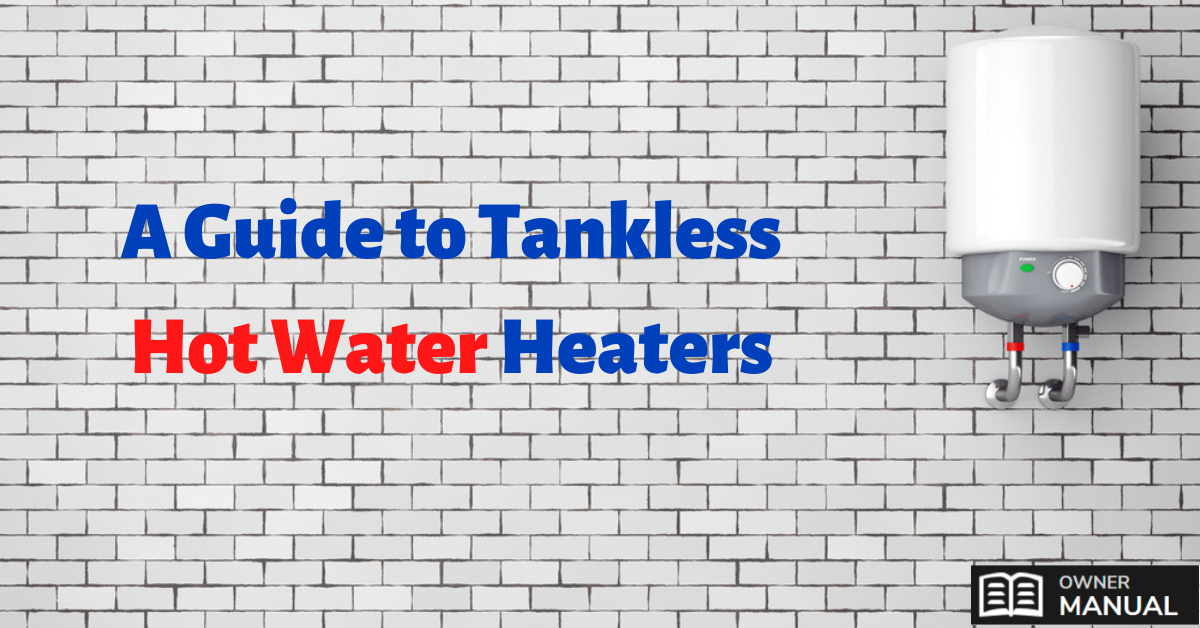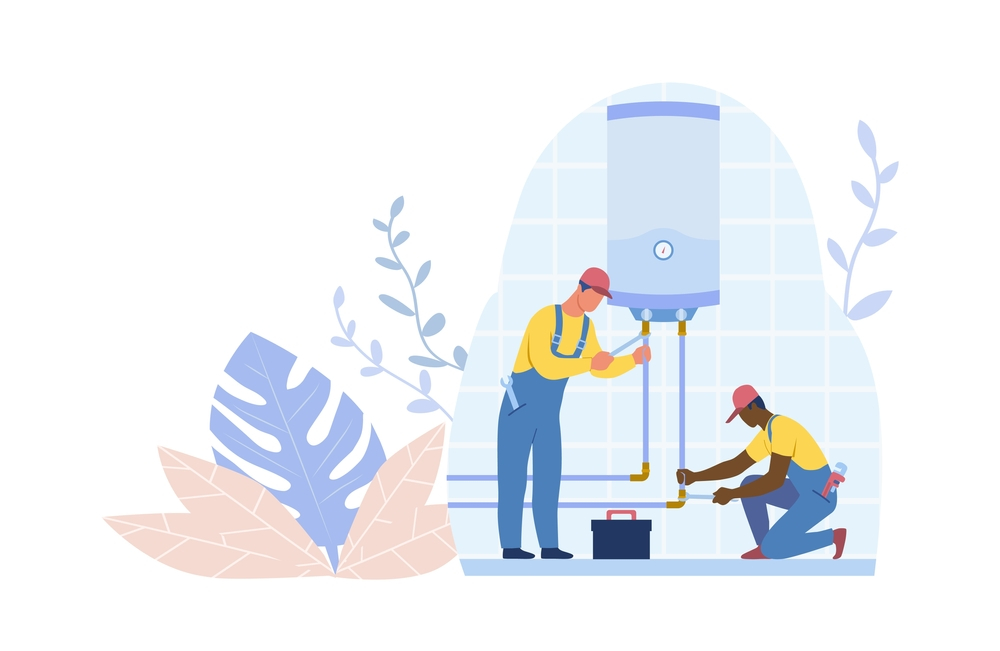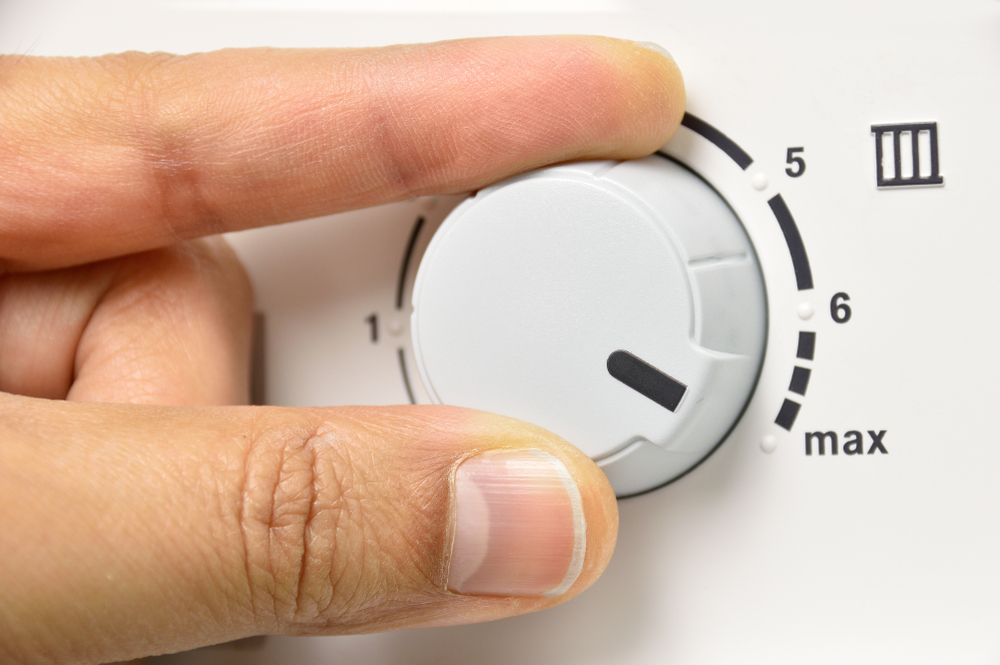A Guide to Tankless Hot Water Heaters

A tankless hot water heater is a sought-after alternative to standard water heaters, like storage heaters. In contrast, traditional water heaters hold and store the water. But, as the name suggests, tankless water heaters can produce hot water on demand without storing it.
If you want to buy a propane tankless hot water heater, you may get overwhelmed with choices. We’ve created a blog to guide you in selecting the best tankless water heaters.
Table of Contents
How do tankless hot water heaters work?

Tankless water heaters utilize gas or electricity to heat cold water almost instantly after entering the unit. A gas burner heats the water when the water heater runs on gas. The electric resistance heating coils heat the water when it runs on electricity.
For tankless hot water heater owners, it significantly means an unlimited hot water supply at almost two to five gallons per minute.
How to start with a tankless water heater?
When replacing your traditional water heater with a tankless water heater, you should consider the temperature of the groundwater in your area. If you live in the northernmost areas of the US, you can expect your average groundwater supply to be between 35 and 40 degrees Fahrenheit. If you live in the southernmost part of the country, expect closer to 70 degrees Fahrenheit.
You should then calculate the difference between the coldest average groundwater temperature and your ideal outlet temperature of the water your tankless water heater supplies.
Next, determine the required flow rate of your water heater, measured in gallons per minute. To calculate the flow rate needed for your house, add the gallons per minute required for each appliance powered by the water heater that you might be utilizing simultaneously (like running your dishwasher or you’re showering). The result is the required flow rate for your home.
Also, before investing in one, you should consider the pros and cons of owning a water heater.
Advantages of Tankless Hot Water Heaters
Here are some of the benefits of tankless water heaters that you must know before purchasing.
Convenience

- Tankless water heaters are much more compact than traditional water heaters, saving space in your home.
- Tankless water heaters may provide a nearly endless hot water supply in minutes, allowing you to complete any hot water task.
- Most water heaters have a front-facing panel that you can use to manage their settings. If you have a gas water heater, it means the capacity to adjust the gas value. For electric water heaters, it means managing the amount of electricity used. Many consumers appreciate this function as it allows them to control their heat, water, and electricity bills.
Efficiency
- Tankless hot water heaters can reduce your energy bill in the long run compared to a traditional water heater.
- A tankless water heater may last up to 20 years, longer than a conventional water heater. It means a reduction in the amount of waste going to landfills.
Disadvantages of Tankless Hot Water Heaters
Some of the downsides of tankless water heaters are as follows:
Risk of Misuse
- With a tankless hot water heater, there is a risk that you will miscalculate your required flow rate. Underestimating this number could cause serious inconvenience to your house. For instance, if the washing machine and dishwasher are running simultaneously and you misjudge your daily hot water needs, it can mean depriving you and other household members of a hot shower.
- Also, overloading the system can cause the system to shut down completely, which can leave home without hot water for hours.
Performance problems
- If your tankless water heater’s air supply has been blocked and the heater is not venting, it may not function. This situation is a serious fire hazard and threatens your hot water supply.
- Sometimes a gas-powered water heater will not ignite properly, usually because the gas supply to the heaters is low. Although you can resolve this problem typically by closing open gas valves, it can be uncomfortable for users.
Mineral composition
- The mineral composition can present a problem in both tankless and traditional water heaters. Heat turns the calcium and magnesium in the water into a scaly substance that accumulates over time. If not managed properly, the buildup can negatively impact the tankless water’s performance.
- To avoid issues with mineral buildup, water heater owners must observe their water supply and change the water filter daily.
How much do tankless hot water heaters cost?
- A tankless hot water heater costs significantly more than a traditional water heater, with a national average of around $2,200.
- In most cases, you will need to hire a plumber to install the water heater, which can cost up to $450.
- To offset the possibility of overloading the system, some homeowners (especially individuals with large homes) end up with two or even three tankless hot water heaters, which is prohibitive for some.
You may visit Ownermanual.co to download user manuals of various tankless water heaters.